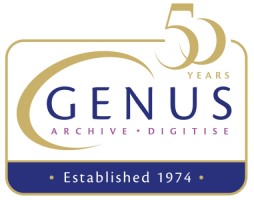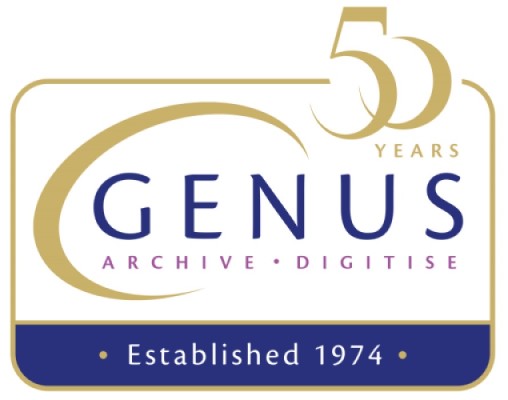The Covid-19 pandemic has had a profound effect on people, businesses and the economy on a global level. The huge levels of infections and unprecedented (in modern times) loss of life has been heart breaking for many families. Indeed, across the UK there are few people that do not know others that have either had the disease or, unfortunately, have died because of contracting it.
At the moment the Government in England and, to a certain extent those of the devolved administrations, are walking a tight rope between controlling the spread of the disease while, at the same time, trying to restart our badly hit economy.
In England at least the drive to restart the economy is partly focused on getting people who work in offices back in their buildings. Civil servants have been ‘told’ that they must attend their offices more and there is a big push to get people back behind their desks.
One of the major effects of the pandemic from the perspective of business is that huge numbers of people have been working from home. This has been a seismic shift in the way people work and it has had some unexpected consequences. Those of us that have been in the world of work for a while will remember from a few years ago that working from home was often frowned upon. ‘Out of sight and out of mind’ meant that managers would incorrectly assume that working from home was really a ‘day off’.
The pandemic has taught us that this is far from the case. In fact, businesses have seen tremendous benefits. Productivity has been at an all time high, time lost to commuting has been transformed into working hours, and online meetings take up less time and are therefore more efficient. Even the perceived negative effects such as lack of social contact are being mitigated by informal get togethers online or adding 15 minutes to the beginning of meetings to allow some social contact before the real work begins.
Another big benefit is in terms of the high cost of office space to business owners. We have had reports of many businesses either downsizing their office space or deciding not to renew expiring leases. We can see why; if everything is working well, or better than before, why not reduce overheads? It is also important to point out that many office workers are simply not comfortable with the idea of moving back into the office for reasons of safety and convenience.
In the above context it is difficult to see why organisations do not move to a state where working from home is their preferred policy. Indeed, the devolved Government of Wales stated on 13th September 2020 that “Nearly a third of people should still be working from homes, even when coronavirus restrictions have eased” With all the online tools at our disposal working from home has never been easier. Many of our customers were already managing much of their businesses with web-based tools such as Office 365, Teams, Zoom, Skype and VoIP phone systems. Shifting to using them all the time has been very straight forward.
The only potential sticking point we have found from our customers is how can remote workers access legacy paperwork and analogue data that they would normally have access to in the Office? Insurance companies, Pension Funds, Archives, the NHS, Financial Institutions and Local Government departments have all been in touch with us in the past months about how to solve this issue.
Here is the challenge: The information which these organisations need to provide their services still resides in an analogue form. Pensions information is in a Microfiche archive, customer files are in filing cabinets, Health records are in basement stores, planning applications reside in long term storage in a warehouse somewhere.
Many organisations have already made the move to digitise their legacy data and this has had multiple benefits;
- Having the data in a digital form reduces risk as there are multiple backed up copies of the data.
- If all the legacy data is digitised then it is available instantly to every person in the organisation that needs it. This dramatically increases efficiency and quality of service.
In a ‘new normal’ where working from home is prevalent, accessing that legacy data securely online will be a vital pillar for success.
Notwithstanding there are still a lot of organisations out there that have not taken that leap to digitise their legacy content. In many cases this was because they could not conceive of a situation where many of their teams would not be physically in the office. Who can blame them as none of us saw the current pandemic coming did we?
The other reason was cost benefit. There was a perception (which our experience would challenge) that the cost of digitising legacy media would not be justifiable when compared to the cost of a few staff who’s job it was to extract the files or microfilm, scan it in and then email it to the requesting person, even if that took a little time.
Our customers have been coming to us with the clear message that they have now realised that the time has come to really tackle their data and put it into a form that can be accessed by everyone in their business, safely, instantly and intelligently. In simple terms Covid-19 has meant that these organisations can no longer avoid the issue.
The thing is that, in the last 2-3 years the process of digitising large volumes of analogue documents and information has become easier, faster, and we have new technological solutions that deliver significant added value to our customers.
Genus is proud to work with HP Inc. and its software partners to provide a digitisation service that delivers structured, easy to navigate data from large archives of legacy documentation. If organisations want to take the leap and invest in the digitisation of their archives then it needs to deliver significant value over and above the immediate benefits of reducing risk and increasing access for their home workers.
With HP we have delivered and are planning some ground-breaking projects where we will be taking in large archives from our customers and digitise them to create high-quality digital surrogates for access through their secure systems or systems we can provide. Depending on the customer we are either digitising everything they have, digitising on demand (as information is required), or a combination. You can see an example of this in our Secure Scanning and Data Extraction of Microfilm Blog.
The ground breaking aspects are that we now have software capabilities that can intelligently extract the key information from the digitised documents so that it can be analysed and deliver business intelligence that has never before been possible without thousands of person hours of analysis.
We have access to software that can ‘read’ all the scanned documentation and categorise it by type based on the context of the terminology used in the documents. For the records managers amongst you this effectively transforms ‘unstructured information’ into ‘structured records’ which gives a much better view of your information. Structured data is information that can be managed and put to work as the life blood of your organisation.
From our side therefore, in the context of all the changes that are happening as a result of Covid-19, we are bringing solutions to our customers that both solve their problems and deliver future focussed protection for their organisations as the way we work changes.
Genus and HP would be pleased to hear from you to see how we can help with your information challenges as your team moves to home working as standard. The time is right to finally tackle your analogue information mountains and Genus and HP have customisable solutions that can enable you to deal with the issue effectively and in a way that gives you much more in terms of business intelligence and insight.





Comments are closed.